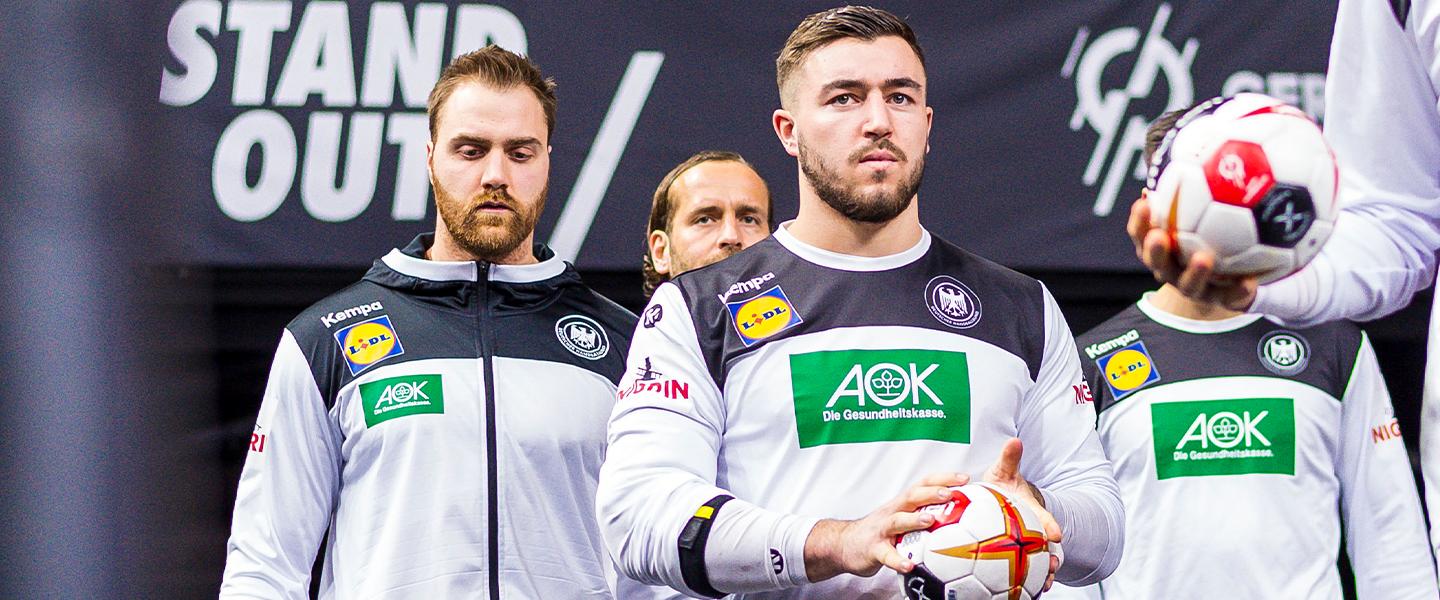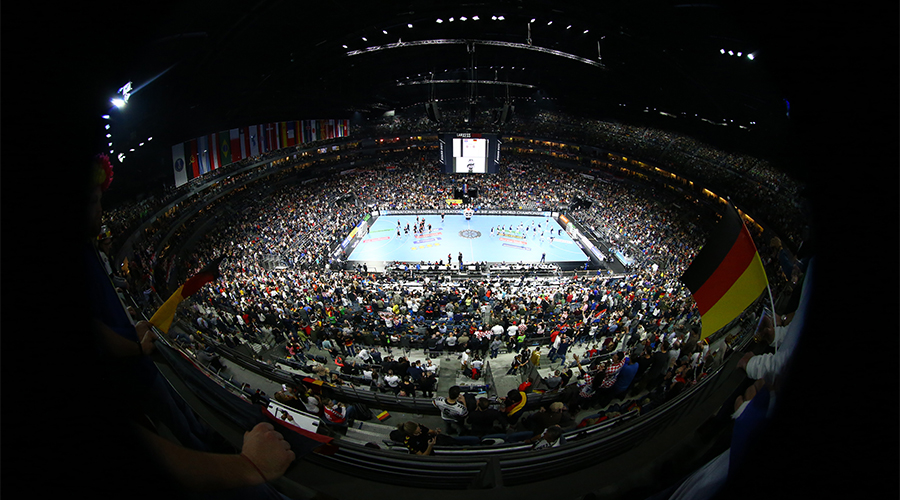The making of major international handball competitions
15 Jul. 2022

Major international handball competitions fascinate fans all around the world as the best of the best compete on the biggest handball stages there are. However, it is not only the sport and the teams that are in the focus during these spectacular events but also the organisers as they put handball in the spotlight and give the sport a chance to shine in their countries.
Germany, the largest handball federation worldwide and one of the handball pioneers, have plenty of experience in organising the world’s biggest handball competitions, and shared their insights as part of the International Handball Week celebrations.
Whether it is major club events, European or World Championships – Germany are doing it all. After hosting the IHF Women’s World Championship in 2017 and co-hosting the 2019 IHF Men’s World Championship with Denmark, handball will dominate the German sports scene in the next years as the country welcomes the world’s best men’s junior teams in 2023, organises the Men’s EHF EURO 2024, co-hosts the IHF Women’s World Championship in 2025 and, finally, brings the world’s best men’s teams together at the IHF Men’s World Championship in 2027.
But how come Germany are that keen to host these events? And what is the path from the idea to the organisation? We talked to Mark Schober, CEO of the German Handball Federation, about all steps that are necessary to make a magical event like a World Championship come to life.
ihf.info: How does the German Handball Federation come to the decision to bid to host a major international championship? Who is involved and what are the steps?
Mark Schober: Hosting major international championships is a strategic decision. By hosting, the chance of being successful with our national teams is far higher. But our first goal is to reach awareness for our sport to gain more fans and players. Medals and home events are proven success factors for reaching attendance. In 2007, for example, we gained 90k new handball players and millions of new fans, not only in Germany, also for the handball all over the world.
Therefore, it is logical that our boards decided to bid to host major international championships. We have an overall supervisory board for our international championships. Work is done in a board of professional directors. By the way, gaining money to develop our federation directly with major international championships is nice but not our main goal and not easy at all. Indirectly top TV numbers and many spectators help to develop our sport also in an economical way.
ihf.info: How does the bidding process work?
Mark Schober: Already before getting the official bidding documents from the IHF, we start with the preparation. Together with our agency mmsports from Munich we prepare the bidding documents, the presentation and start a pitch for the venues.
ihf.info: What happens after a federation has been awarded a championship?
Mark Schober: Directly after awarding, the organisation of the events starts. First, the venues have to be selected after the finalisation of the pitch. Second, a pitch for a ticketing dealer may be necessary. Next task is to set up the design and start with the communication to sell tickets. Then, the organisational part starts with booking of hotels, entertainment programme, searching for volunteers, merchandising, accreditation systems and so on.
ihf.info: When organising an event like a World Championship, what are some of the main considerations for the local organisers?
Mark Schober: For organising an international championship, we have very strong local organisers. We set up local organising committees with responsible persons for general organisation, team support, communication, hospitality, accreditation, volunteering, and handball development. Our contractual partners are the cities and arenas. They are experts in organising big events. The Lanxess Arena in Cologne for example organises several big handball and other events all year round. The local organiser, together with the regional handball federation and surrounding clubs, is also responsible for the very important field of making offers for developing our sport, like handball tournaments for amateurs and schools, appreciation for volunteers, and so on.
ihf.info: When the championship finally takes place, the work is, of course, not over yet: how much of it is done by the German Handball Federation itself, what is done by other companies and what is done by volunteers?
Mark Schober: We have a team of 10 employees working only for the tournaments. Every second employee of our 50 staff members of the federation also has a task in the organisation of our events. Around 800 volunteers will work in different fields for the 2027 IHF Men’s World Championship or the IHF Women’s World Championship in 2025 or the EHF EURO 2024 – not to forget the IHF Men’s Junior (U21) World Championship in 2023. As I said, we have very strong local venues. Around 5 to 8 professionals of every venue also work permanently for our events. During the tournaments, this number is far higher because a lot of staff for security or catering is necessary. And there are external companies we hire for example for the entertainment programme, statistics, technics and more. Last, but not least, we should not forget the staff from the IHF, the referees and delegates. All together a big crowd of people.

ihf.info: What has to be done after the championship is over?
Mark Schober: Of course, there are a lot of administrative things to do, but it is also time for relaxation. Not too long because the next event will come soon.
ihf.info: In the next few yours, the motto of the German Handball Federation is post-World Championship is pre-World Championship. Does the organisation overlap or does each World Championship have its own organisational team?
Mark Schober: We named the next decade the “Decade of Handball”, due to the fact that we organise the IHF Men’s Junior (U21) World Championship together with Greece, the EHF EURO 2024, the 2025 IHF Women’s World Championship together with the Netherlands and the very big event: the IHF Men‘s World Championship. Our organisational team will hopefully be the same for the next years. Of course, the local organising committees will change and for the joint-events, we need some additional organisational structure.
Overall, everything sounds more complicated as it is. It is not. We are really looking forward to being excellent hosts for our guest teams and creating unforgettable times for our fans.
Header photo: Marco Wolf

